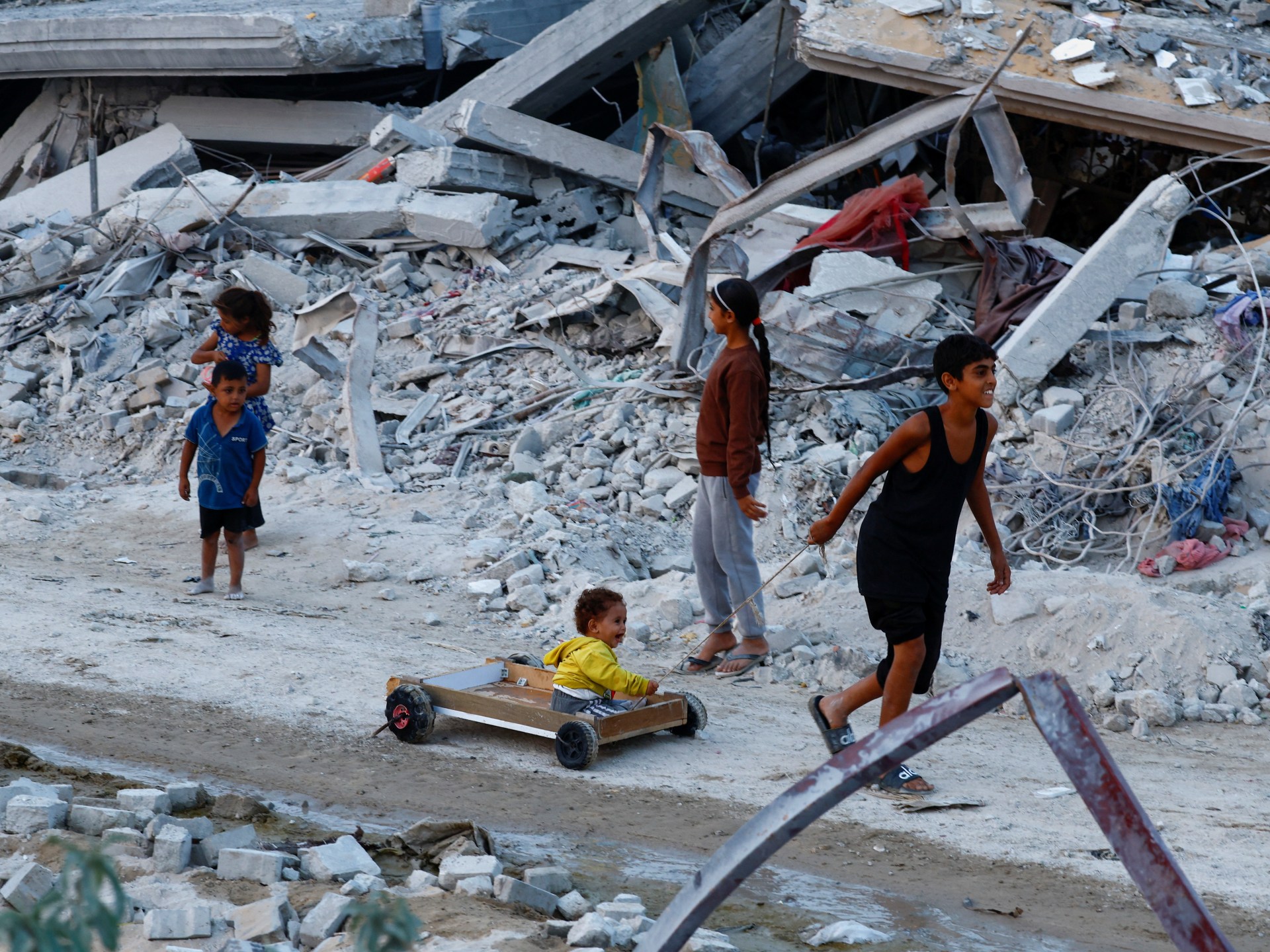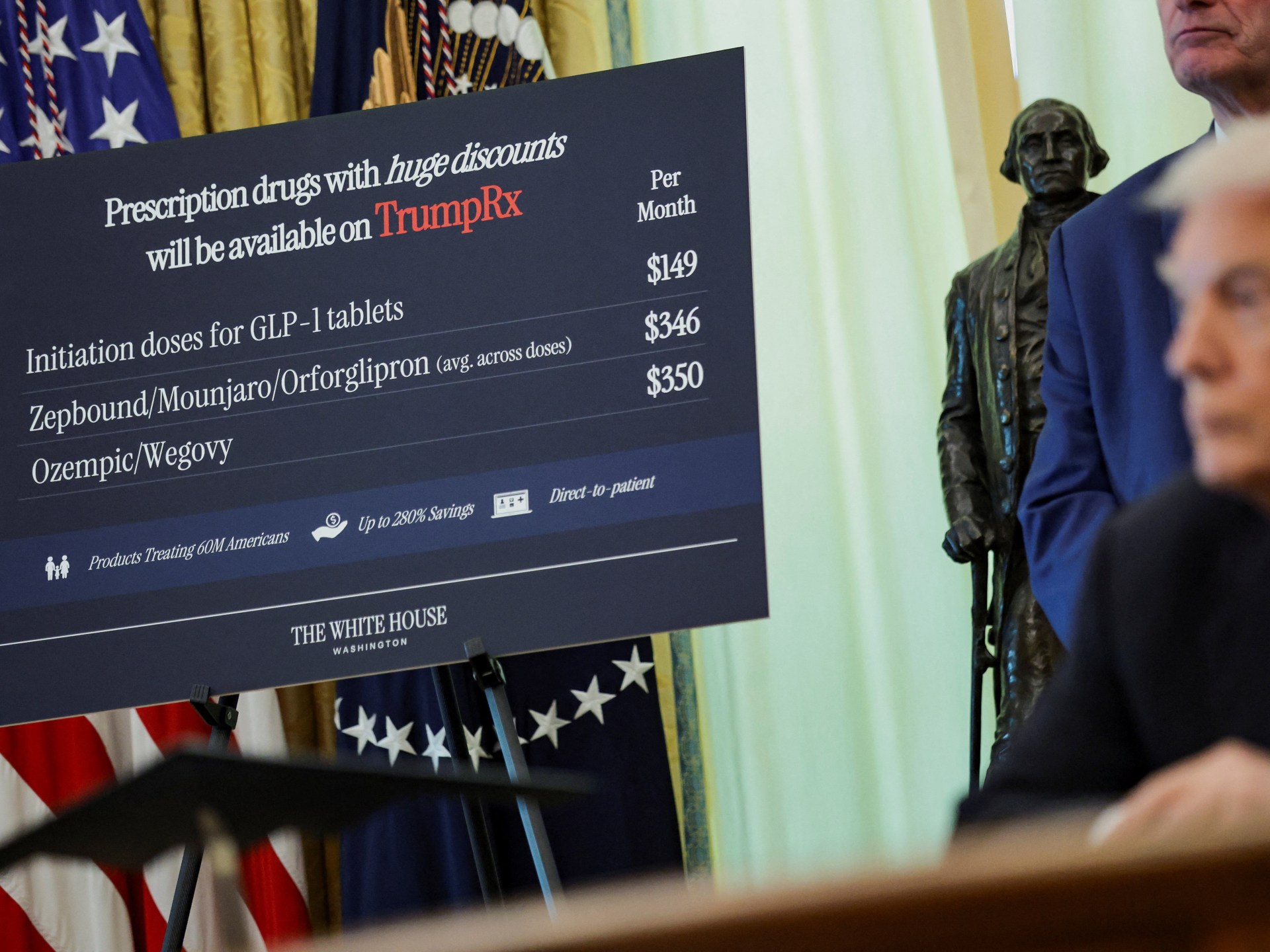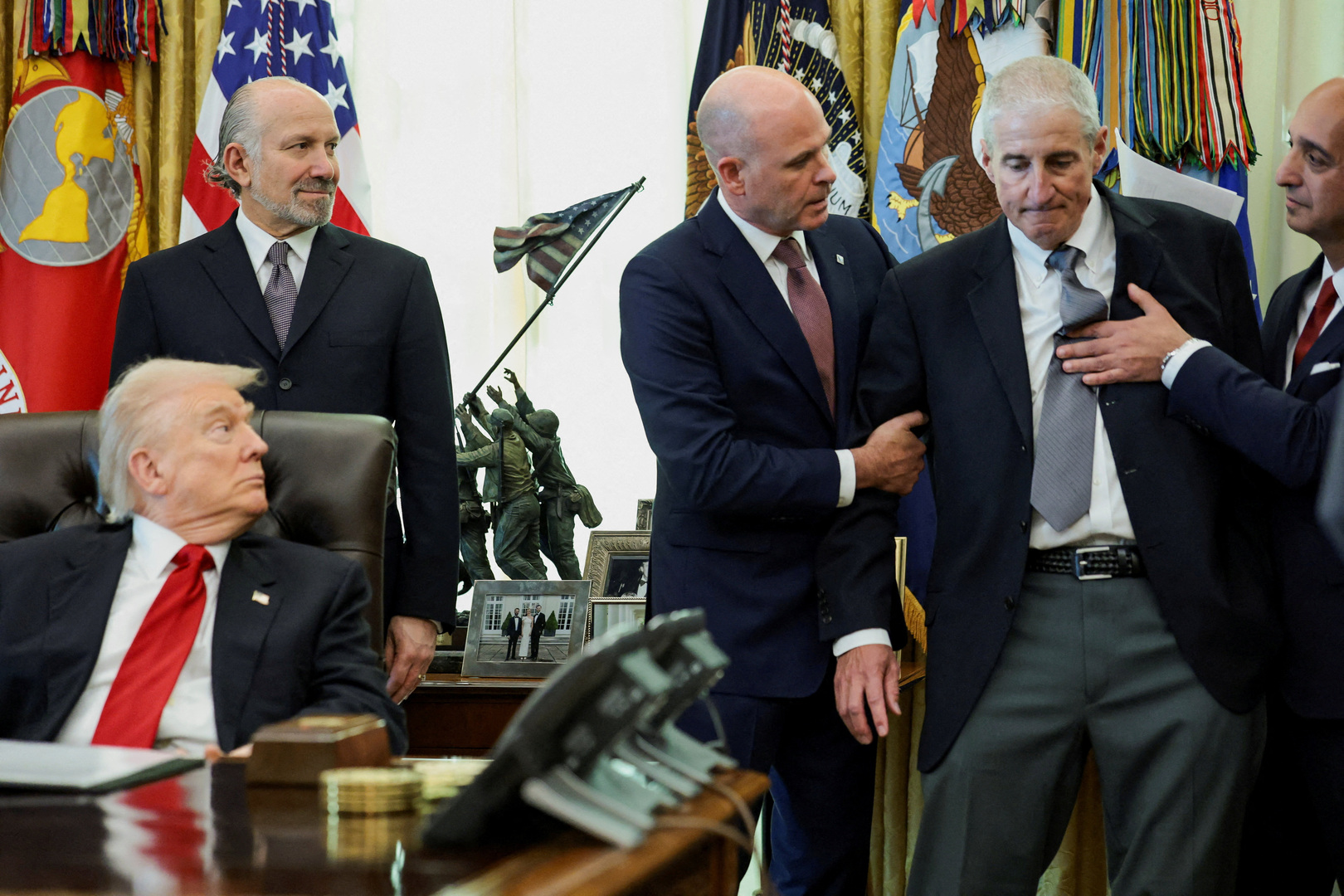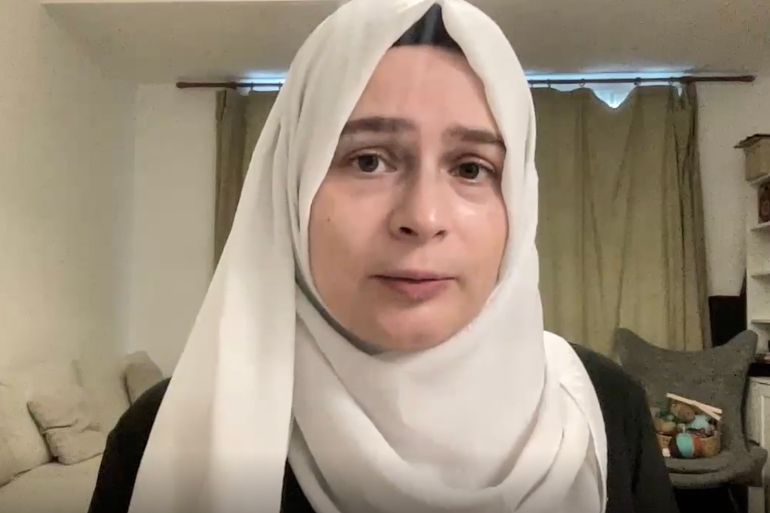Italy is welcoming 19 children who were evacuated from Gaza by the World Health Organization. They’ll receive advanced medical treatment in several hospitals across the country.
Sick children from Gaza arrive in Italy for medical treatment


Italy is welcoming 19 children who were evacuated from Gaza by the World Health Organization. They’ll receive advanced medical treatment in several hospitals across the country.

A Dutch appeals court has dismissed an attempt by human rights organisations to stop the Netherlands from selling weapons to Israel.
Ten pro-Palestinian NGOs had filed a lawsuit accusing the Dutch state of doing too little to prevent what they described as “genocide” in Gaza with a “clearly unlawful” foreign policy towards Israel.
list of 3 itemsend of list
They urged judges to impose a blanket ban on weapons exports to Israel, a ban on exporting military dogs, and a ban on trading in the occupied territory.
A Dutch court rejected their case last year, saying the state has some leeway to decide its policies and courts should not rush to step in.
The NGOs had cited a January 2024 order to Israel by the International Court of Justice (ICJ) to prevent acts of genocide in Gaza. The UN’s top court said it was plausible that Palestinians were being deprived of some rights protected under the Genocide Convention.
On Thursday, the Hague Court of Appeal dismissed the groups’ appeal, saying that, although “there is a serious risk that Israel will commit genocide against the Palestinian population in Gaza,” the Dutch government has “considerable discretion” to determine foreign policy and issues of national security.
In a written ruling, the court said it could not order a blanket ban because the plaintiffs had not shown the government was routinely failing to consider whether exported arms or dual-use goods would be used to violate rights.
The court also ordered the organisations to pay legal costs.
“While it is plausible that there is a risk of genocide and serious human rights violations, it is not, in principle, up to the court to prescribe to the State what measures must be taken to prevent this,” said the court in a statement.
The group of NGOs were hoping the lawsuit would force the Dutch to stop sending weapons and trained police dogs to Israel and cut economic ties with businesses operating in occupied Palestinian territory. They argued that the Dutch state, as a signatory to the 1948 Genocide Convention, has a duty to take all reasonable measures at its disposal to prevent genocide.
However, while the court in The Hague said Thursday that the Netherlands did have that obligation under the Genocide Convention — noting there was “a grave risk” that Israel was committing genocide in Gaza — it ultimately ruled the Dutch government already did enough to discourage companies from working in occupied Palestinian territory.
The Dutch government has denied it violated the 1948 Genocide Convention, drawn up following World War II.
“Every cooperation is cautiously weighed,” government lawyer Reimer Veldhuis said during a hearing last year.
The Dutch government says it has halted most arms exports to Israel and only allows parts for defence systems, such as the Iron Dome.
Israel’s war on Gaza has killed at least 68,875 Palestinians and wounded 170,679 since October 2023. At least 1,139 people were killed in Israel during the October 7, 2023, Hamas-led attacks and more than 200 others taken captive.

United States President Donald Trump, Eli Lilly and Novo Nordisk have unveiled a deal to slash the prices of popular GLP-1 weight‑loss drugs for the government’s Medicare and Medicaid programme, as well as for cash payers.
The deal, announced on Thursday, is aimed at increasing access to treatments through US Medicare for people aged 65 and above and the Medicaid programme for low-income people, which together provide healthcare coverage for nearly half of all Americans.
list of 4 itemsend of list
US patients currently pay by far the most for prescription medicines, often nearly three times more than in other developed nations, and Trump has been pressuring drugmakers to lower their prices to what patients pay elsewhere.
“It’s going to equalise the world,” Trump told reporters from the Oval Office, noting that Lilly and Novo would be providing their other medications to Medicaid at “most-favoured-nation” prices.
The event ended abruptly when an attendee in the Oval Office collapsed.
Starter doses of rival weight‑loss pills being developed by Lilly and Novo, if approved, will cost $149 per month for all Medicare and Medicaid enrollees and via the White House’s new direct-to-consumer site, TrumpRx, senior administration officials said.
For currently available injectable GLP-1s used for diabetes and other covered health issues, prices would fall to $245 per month for patients with Medicare or Medicaid, they said.
On TrumpRx, the average price of injectables and pills will start at or below $350 monthly and is expected to trend downwards to $245 within two years.
Lilly announced that the lowest dose of Zepbound will be available for $299 per month, with additional doses priced at $449 per month for cash-paying patients under the new deal.
In Medicare, patients’ co-pays will be capped at $50 a month, officials said.
Commercial health insurers would also be able to access prices estimated to be 25 percent lower than current cash prices, they said.
The government will also expand coverage for GLP-1s under the deal, officials said, to overweight patients with prediabetes or heart problems, obese patients with comorbidities and severely obese patients, accounting for 10 percent of Medicare patients.
Currently, Medicare does not typically cover the drugs for obesity. Coverage in Medicaid, which is run by each state and jointly financed with the federal government, varies.
The agreed prices will come into effect no later than January for cash payers, by mid-2026 for Medicare patients and on an ongoing basis for Medicaid enrollees, depending on when states sign up.
Administration officials said the companies would get relief from tariffs as part of the deal. Lilly said it would be exempted from tariffs for three years.
The officials also said Novo and Lilly will receive fast-track regulatory vouchers for some of their future drugs.
Novo’s Wegovy and Lilly’s Zepbound are the only highly effective GLP-1 weight-loss drugs sold mainly in the US as weekly injections. List prices top $1,000 a month, though both offer cash buyers a $499 monthly supply.
Novo Nordisk has committed to an additional $10bn investment in the US, according to a White House fact sheet.
Lilly said the agreement will improve access to medications for nearly 40 million Americans covered by government insurance programmes, as well as millions more who pay out-of-pocket.
It said it would add its diabetes medications – Emgality, Trulicity, and Mounjaro – to its direct-to-consumer platform, offering them at 50 percent to 60 percent below their current list prices.
Deutsche Bank analysts saw the deal as a potential catalyst for Lilly’s growth. It estimated that a $150 monthly cap could unlock access for up to 15 million Americans when applied to orforglipron, its experimental weight-loss pill that succeeded in a late-stage trial.
Deutsche Bank said increased uptake would come from the estimated 20 percent of obese adults who would prefer pills to needles. About 2.7 million Americans currently take Lilly’s injectable Zepbound, it said.
Lilly and Novo are racing to bring oral GLP-1 treatments to market. Novo’s once-daily oral Wegovy is under Food and Drug Administration review with a decision expected later this year, while Lilly’s orforglipron is set for regulatory submission by the end of the year and a potential launch in 2026.
BMO Capital analyst Evan Seigerman said Lilly’s dominance in the GLP-1 space continues to deepen, with physicians and patients increasingly favouring its drugs.
Pfizer and AstraZeneca previously signed new pricing agreements tied to the TrumpRx platform.

Video shows an attendee collapsing during an Oval Office event on lowering weight-loss drug prices. White House medical staff responded immediately. Press Secretary Karoline Leavitt said the man, identified as a health care company representative, is OK. The event later resumed.

The London university where British political commentator and journalist Sami Hamdi completed his studies has called for “full transparency and due process” regarding his detention in the United States.
In a statement published on Wednesday, SOAS University of London said it was “deeply concerned” by reports of Hamdi’s detention, adding that “there is no indication that Mr Hamdi has violated any laws”.
list of 3 itemsend of list
“We urge the US authorities to ensure full transparency and due process in Mr Hamdi’s case, and to uphold his fundamental right to freedom of expression and movement.”
Hamdi, 35, was stopped at San Francisco international airport in California on October 26 and detained by agents from the Department of Homeland Security’s Immigration and Customs Enforcement (ICE) agency.
The Council on American-Islamic Relations (CAIR) condemned Hamdi’s detention as “a blatant affront to free speech”, attributing his arrest to his criticism of Israel’s genocidal war on Gaza, which has killed at least 68,875 Palestinians and wounded 170,679 since October 2023.
Hamdi, who was completing a speaking tour in the US discussing Israel’s war on Gaza, had addressed a CAIR gala in Sacramento, California, the previous evening and was due to speak at another CAIR event in Florida.
He was unaware at the time that his visa had been revoked by US authorities two days before his detention.
Hamdi’s detention has led to a legal battle, with his lawyers filing emergency petitions against his detention, and his wife Soumaya and civil society groups demanding that the United Kingdom government take action.
Soumaya told Al Jazeera that the US government has still not provided any evidence “as to why they feel the need to revoke his visa. And therefore they are treating him as an overstayer”.
She said the incident raises an important question: “Has the United States become a country now where a British citizen travelling on a valid visa can be detained at will? Because that is really scary.”
Soumaya said she believed her husband had been targeted by the US authorities because “he’s become extremely effective at galvanising support for Palestinian rights. Sami has been able to bring people together across the political spectrum, not just within Muslim communities.”
She also said her husband’s arrest should be of concern to “everybody who values the right to freedom of speech, everybody who values the right to receive facts from journalists and for journalists to be able to report on news without being persecuted”.
“If they [US authorities] are able then to treat Sami in this way, it’s only a matter of time before they start to treat US citizens like that too.”

The Rapid Support Forces (RSF) says it has agreed to a proposal by the United States for a ceasefire in Sudan after more than two years of fighting with the Sudanese Armed Forces (SAF).
The paramilitary group said in a statement on Thursday that it would accept a “humanitarian ceasefire” proposed by the US-led “quad” mediator group, which includes Saudi Arabia, Egypt and the United Arab Emirates, “to address the catastrophic humanitarian consequences of the war and to enhance the protection of civilians”.
list of 3 itemsend of list
There was no immediate comment from Sudan’s military.
Earlier this week, the US senior adviser for Arab and African affairs, Massad Boulos, said efforts were under way to reach a truce and that the warring sides had “agreed in principle”.
“We have not recorded any initial objection from either side. We are now focusing on the fine details,” Boulos said on Monday in a statement carried by the Sudan Tribune news outlet.
Reporting from Khartoum, Al Jazeera’s Hiba Morgan said the plan would begin with a three-month humanitarian truce that could pave the way for a lasting political solution, which would include a new civilian government.
The RSF “said that they’re eager to find some kind of end to this two-year conflict”, Morgan said of the group’s agreement to the truce.
SAF has repeatedly said it wants to continue fighting, Morgan reported, adding that army officials do not believe members of the RSF can be reintegrated into Sudanese society.
SAF has previously said it does not want the UAE’s involvement in truce discussions and that it will demand the RSF withdraw from any city it occupies, among other stipulations, she said.
“This humanitarian access the ceasefire would bring about is desperately needed, but the Sudanese army is yet to agree to it. They have conditions,” Morgan reported. “It doesn’t look like the RSF will meet them.”
Earlier on Thursday, army chief Abdel Fattah al-Burhan had said his forces were “striving for the defeat of the enemy”.
“Soon, we will avenge those who have been killed and abused … in all the regions attacked by the rebels,” he said in a televised address.
The announcement comes as the RSF faces accusations of committing mass killings since it seized the city of el-Fasher in North Darfur state on October 26, following an 18-month siege.
The RSF now dominates the vast western Darfur region and parts of the country’s south, while the army holds the north, east and central regions along the Nile and the Red Sea.
More than 70,000 people have fled el-Fasher and surrounding areas since the RSF’s takeover, according to the United Nations, with witnesses and human rights groups reporting cases of “summary executions”, sexual violence and mass killings of civilians.
The World Health Organization had reported the “tragic killing of more than 460 patients and medical staff” at a former children’s hospital during the city’s takeover.
Researchers at Yale University said in a report on Thursday that new satellite imagery has detected activity “consistent with mass graves” in the city.
The US university’s Humanitarian Research Lab (HRL) report said it found evidence consistent with “body disposal activities”.
The report identified “at least two earth disturbances consistent with mass graves at a mosque and the former Children’s Hospital”.
It also noted the appearance of metres-long trenches, as well as the disappearance of clusters of objects consistent with bodies near the hospital, the mosque and other parts of the city – indicating that bodies deposited around those areas were later moved.
“Body disposal or removal was also observed at Al-Saudi Hospital in satellite imagery,” the report said.
The war in Sudan, which erupted in April 2023, has pitted the army against the group led by al-Burhan’s former deputy, RSF commander Mohammed Hamdan Daglo, also known as Hemedti.
Both the warring sides have been accused of war crimes. In a September report, the UN Human Rights Council accused both sides of extrajudicial killing, large-scale attacks against civilians and torture. It also reported an “overwhelming volume” of evidence on sexual violence primarily perpetrated by RSF and SAF members.